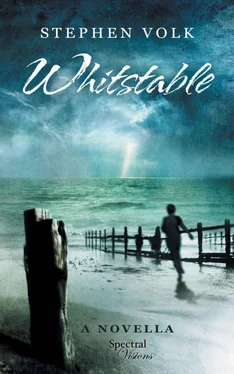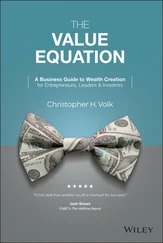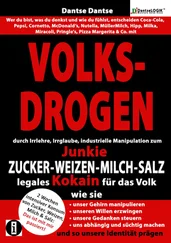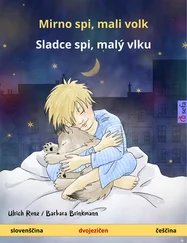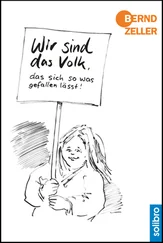“Helen…”
How could he be downhearted when countless individuals led their entire lives without finding a love even a fraction as powerful as the one he had found?
He picked up her photograph and pressed it to his lips.
* * *
Square and temple-like, it had gone the way of all flesh. Now mostly a bingo hall, The Oxford in Oxford Street was a piece of faded gentrification, a mere memory of past glory, a vision of empire slowly turning to decay, a senile relative barely cared for and shamefully unloved. All those things. He remembered being told, at some official council function or other, that the original cinema opened in 1912, long before talkies, even before he was born. Rebuilt in 1936 in Art Deco style by a local architect, the regenerated Oxford’s first film show was Jack Hulbert in Jack of All Trades . Extraordinary to contemplate, looking at it now.
He trod out a cigarette on the pavement.
Behind glass, Ingrid Pitt’s fearsome, fanged countenance loomed over a tombstone. Beautiful temptress or bloodthirsty monster? She’s the new horror from Hammer! He noticed his own name amongst the other co-stars, George Cole and Kate O’Mara. Inevitably it brought back the letters of condolence he’d received from both of them. And the strangers who had done so, too. He thought it peculiar, yet immensely touching, that those who’d never even met his wife or himself personally would feel moved to make such a gesture. The foibles of the human heart were infinite, it seemed, at times. But that notion did more to give him a chill of apprehension than stiffen his nerves.
Inside, the carpet tiles were disastrously faded and the disinterested girl at the ticket booth barely old enough to be out of school. He did not need to say “upstairs” as he used to, because the seats in the stalls had been removed for bingo tables. Upstairs were the only seats left. With a clunk the ticket poked out and he took it.
“Excuse me for asking. Are you Peter Cushing’s father?”
“No, my dear. I’m his grandfather.”
In what used to be the circle the house lights were up and he had no difficulty finding his way to a middle seat, halfway back. As yet he was the only one there. He took off his scarf and whipped the dust off it before sitting. It was more threadbare than when he’d come last, but he couldn’t blame the owners. Trade was dwindling. The goggle box in the corner was sucking audiences away from cinemas: not that he should complain—there was a time, at the height of his success in that medium, when people joked that a television set was nothing so much as “Peter Cushing with knobs”. But now people were becoming inert and frighteningly passive, like the drones predicted in Nineteen Eighty-Four , which so horrified when he starred as Winston Smith in the BBC production in the fifties that it caused a storm of outrage. Questions were raised in Parliament, no less: the remarkable power of drama to jolt and shock from complacency. Some outrage was necessary, he also considered, when picture palaces like this, almost jokily resplendent in Egyptian Dynastic glamour, were becoming as decrepit as castle ruins.
He thought again of Orwell’s masterpiece and wonderful Helen standing just off camera, her radiant smile giving him a boost of confidence to overcome his chronic nerves. What had been the play’s theme? Love. And what was the ghastly phrase of the dictatorship? Love crime . Two words that were anathema in juxtaposition. Except, perhaps, in a court of law. Indeed, he wondered if this was his own ‘Room 101’ in which he had to face the very thing he feared most: love, not as something sacred, but as something unspeakably profane.
His stomach curdled—as it often did of late—and he tried to shift his musings elsewhere. To Wally the projectionist, who once proudly showed him his domain, with its two 1930s projectors that used so much oil that, when it came out the other end, he’d use it in his car.
Cushing took his coat from the seat next to him and folded it over the one in front. He was hoping the vacant seat would be occupied. Eventually, if not sooner. For now he had best try to endure the sticky smell of popcorn and Kia-Ora embedded in the surroundings.
He put on his white cotton glove and lit a cigarette. Before he’d finished it Russ Conway’s ‘Donkey Serenade’ faded and the house lights went down.
Without the pre-amble of advertisements, often the case in a matinee, sickly green lettering was cast over the rippling curtains as they creaked begrudgingly open. Mis-timed as ever.
An American International/Hammer Films Production.
Ah yes.
Jimmy ringing him in a panic saying AIP were getting cold feet because they’d cast an unknown in the lead, and a Polish girl at that. They’d already had to defend their decision to the Ministry of Labour, for God’s sake: now the Americans had said they’d feel more secure with a “traditional Hammer cast”. And so he’d stepped into the breach at the last minute to save Hammer’s bacon. He could hardly believe that only a year ago he was filming it all on Stage Two and at Moor Park golf course, with Helen waiting for him at home, alive, when they called it a wrap.
He squinted as colour flecked the dark air and dust motes.
Lugubrious Douglas Wilmer’s Baron von Hartog closes the book on his family history. He watches from a high window in the ruined tower of Karnstein castle as an apparition floats around the fog-swathed graveyard below. A phantasm in billowing shroud-cloth, the Evil not yet in human form…
The words of the actor in voice-over blended with the words Cushing recalled dimly from the script.
How the creature, driven by its wretched passion, takes a form by which to attract its victims…
How, compelled by their lust, they court their prey…
“Driven by their inhuman thirst—for blood…”
Cushing shifted in his seat. Why were cinema seats so desperately uncomfortable?
The camera tracks in towards a drunk who has staggered out of a tavern and stands urinating against a wall. His stupid face opens in a lascivious grin. Back inside the tavern, his scream chills the air and everyone freezes in horror—the way Hammer does best. The serving wench runs to the door and opens it to find the drunk with twin punctures in his neck. Lifeless, he falls…
Peter Cushing looked at his watch. Tricky to see in the dark. The merest glint of glass. Hopeless. Hearing the screech of a sword drawn from its scabbard, he lifted his eyes back to the screen.
Douglas Wilmer waits in the chapel for the apparition to return to its grave. As his eyes widen, the camera pans to a diaphanous shroud more like a sexy Carnaby Street nightgown than anything from the nineteenth century, and the naked, voluptuous figure beneath it. The camera rises to the face of a beautiful blonde. She steps closer and wraps her arms around the frightened, mesmerised Baron. When her cleavage presses against the crucifix hanging round his neck she recoils sharply, her lips pulled back in a feral snarl. Close up: bloody fangs bared in a lustrous, female mouth. With a single swipe of his sword he decapitates her. Moments later, her severed head lies bloody on the castle flag stones at his feet. The lush music of Harry Robinson, as romantic as it is eerie, wells up over the title sequence proper…
Still the seat beside Cushing remained empty. He lit a second cigarette. By now he was wondering if he would be sitting through the film alone. Perhaps his attempt to entice the creature hadn’t been as clever as he’d thought.
The pastiche Strauss made him cringe every time. He’d never been impressed by the tatty ballroom scene at the General’s house. The Hammers were always done cheaply—the ingenuity and commitment of cast and crew papering over inadequate budgets—but now they were starting to look cheap. It worried and saddened him. Like seeing a fond acquaintance down on their uppers. Byronic Jon Finch looked heroic enough, he had to admit. He didn’t look bad himself as a matter of fact, in that scarlet tunic and medals…
Читать дальше
